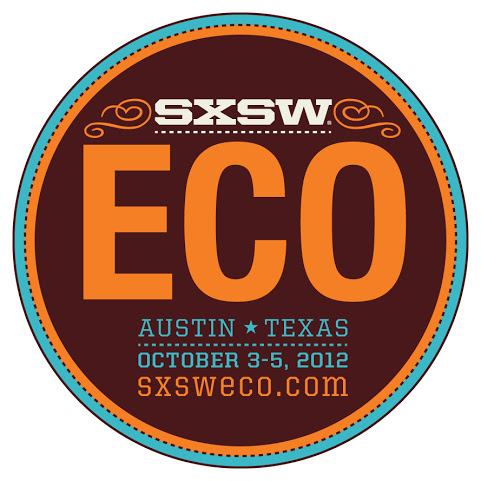Much like the music, film and interactive iterations of the conference, SXSW Eco attempts to bring together like-minded thinkers from just about every corner of a specific realm – this one being the environmental. Now in its third year, the Eco conference seems to be making the transition from a platform for innovators to get together and discuss the future of conservation and sustainability to a place where those with a subtle or even undisclosed environmental sense can collaborate in an effort to make a profit through “greening up” their businesses.
This year, likely due to a growing number of registrants, the conference moved downtown to the Austin Convention Center. SXSW Eco was held at the AT&T Center on the UT Campus last year. This year’s SXSW Eco also expanded its Eco Exhibition, which featured inventors, creators, and digital programmers. This year, the Eco Exhibition was free and open to the public.
The three-day conference featured more than 300 speakers on topics ranging from urban gardening and reducing food waste to the future of green fashion and sustainable travel. One of the more interesting and useful panels throughout the conference, however, was a panel aimed at explaining an element of social engagement that most of us are (sometimes frustratingly) familiar with – “How Online Petitions Can Influence Public Policy.”
The panel featured three speakers: Ben Kroetz with Greenpeace, Heather Shelby with the Environmental Defense Fund, and Linda Escalante with the Natural Resource Defense Council. The proceedings began with a quick introduction by moderator Lawrence Grodeska of Change.org, who then discussed the recent success of the EPA in obtaining signatures for a petition aimed at protecting clean air through carbon regulation: “2.5 million comments, overall, were submitted,” Grodeska said. That is “the largest number of signatures and comments submitted to any federal regulation in U.S. history.”
But after those quick congratulations to the EPA, the panel shifted from being strictly sunshine and lollipops to addressing some of the shortcomings of online communication. The moderator and all three panelists acknowledged that online petitions were helpful in spreading the word about their respective causes, but Heather Shelby of the EPA admitted that online petitions have their limitations.
“About two thirds of [Congressional] staffers actually think that the Internet has reduced the quality of messages that they’re getting. And so I think the main thing with these things too is to remember that it’s more about the content than the type of communication that is happening. A lot of them actually will value a Facebook post over an identical form communication because they know that it’s a person’s individual thought rather than them clicking a send button.”
The panel concluded with a question about where online activism will be in the next three years. “It’s about moving past petitions,” said Greenpeace’s Ben Kroetz. “We find that the number one request that our volunteers have is nothing from us. They just want to know who else around them is doing the same things they are. I think petitions will be a fundamental part of that, but just one piece of it.”

